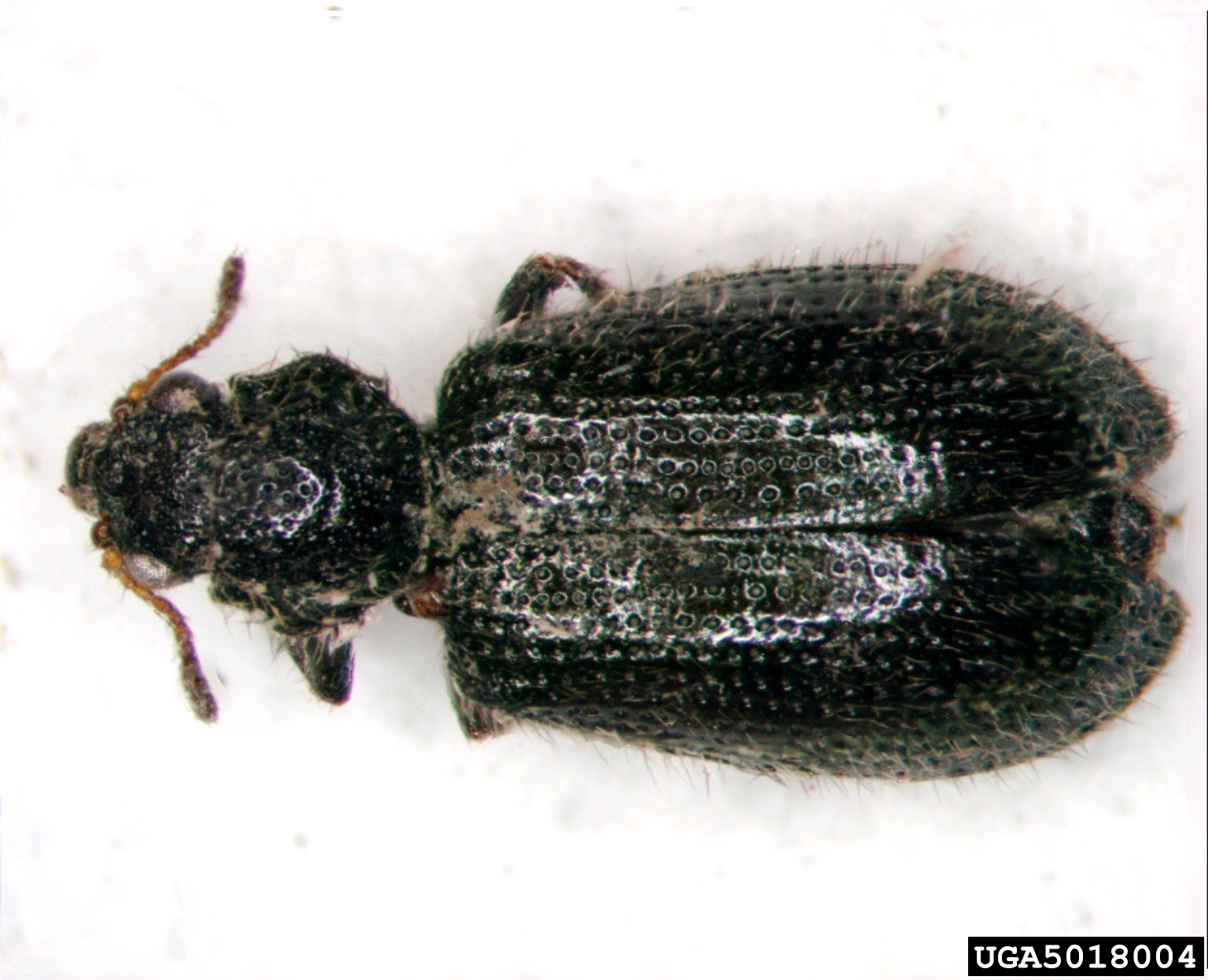For more than a decade, Tennessee's Eastern hemlock trees have been fighting a losing war against a tiny aphidlike insect - the hemlock woolly adelgid. And Signal Mountain has been a full-fledged combat zone.
But state scientists say they might have a secret weapon to retake the ridge -- a bigger bug.
Barbara Womack, vice chairman of the Signal Mountain Tree Board, is raising awareness -- and money -- to buy a small army of laricobius nigrinus, or LN beetles, so the bugs can stage an offensive on the adelgid infestation.
Womack, along with biologists and others in the Tennessee Hemlock Conservation Partnership, hope to release 1,000 of the beetles at Rainbow Lake near Prentice Cooper State Forest.
The beetles are a natural predator of the woolly adelgid on the West Coast, where Western hemlocks are thriving, and Womack says the beetles could be the key to saving hemlocks at home.
"If there's any hope long term for the Eastern hemlock in Tennessee, it's got to be through biological control. We've got to get the biological predators to control it," Womack said.
That plan's a good one, according to Heather Slayton, forest health unit leader for the Tennessee Department of Forestry.
Similar beetle releases have found success in staving off adelgids and relieving the hemlock populations in the Great Smoky Mountains National Park and other parts of the Southeast.
"They have been released in the Smoky Mountains National Park for many years and we have seen some controls. [Hemlock woolly adelgid] is not going to be eradicated, but these organisms will help get it controlled," Slayton said.
The adelgid came to the East Coast from Japan sometime in the 1950s, Slayton said. They started in Virginia and have spread across the Southeast since. They were first spotted in Tennessee in 2002, and have been eating up hemlocks since.
But the minuscule bugs had been living on the West Coast since the 1920s, and the Western hemlocks didn't seem to mind. Slayton said that is largely due to the Western hemlocks evolving with the adelgid -- and having the beetles to help them fend off the tree-eaters.
Pat Parkman, director of the Lindsay Young Beneficial Insects Laboratory at the University of Tennessee at Knoxville, said he has high hopes for the LN beetles because they only eat adelgids and they will likely stay and populate in the same area. Other types of beetles used in the past tend to disperse.
He also said the LN beetle will be a good fit for Signal Mountain, because there will be no need to one day find some species to prey on it to control beetle populations.
"People often wonder if these are going to become pests themselves ... but this laricobius beetle is very specific to the hemlock woolly adelgid. As the adelgid goes, so goes the laricobius," Parkman said.
And Womack hopes Slayton, Parkman and a swarm of other biologists are right.
The town has to get the beetles from a private bug dealer, since state labs can't sell to private parties. So she's raising funds to enter the insect trade.
"We are going to release 1,000 beetles, and that's $3,000 worth," she said. "The beetles are $3 each, if you want to just spend a little do that."
Womack plans to release the bugs in November and perhaps do another release later to help the beetle population establish. And when she thinks about the prospect of losing the hemlocks, every bug is worth it.
"Everything we're doing is experimental. They started working on this 10 to 12 years ago, and they are learning more and more as time goes on," Womack said.
Contact staff writer Louie Brogdon at lbrogdon@timesfreepress.com, @glbrogdoniv on Twitter or at 423-757-6481.

